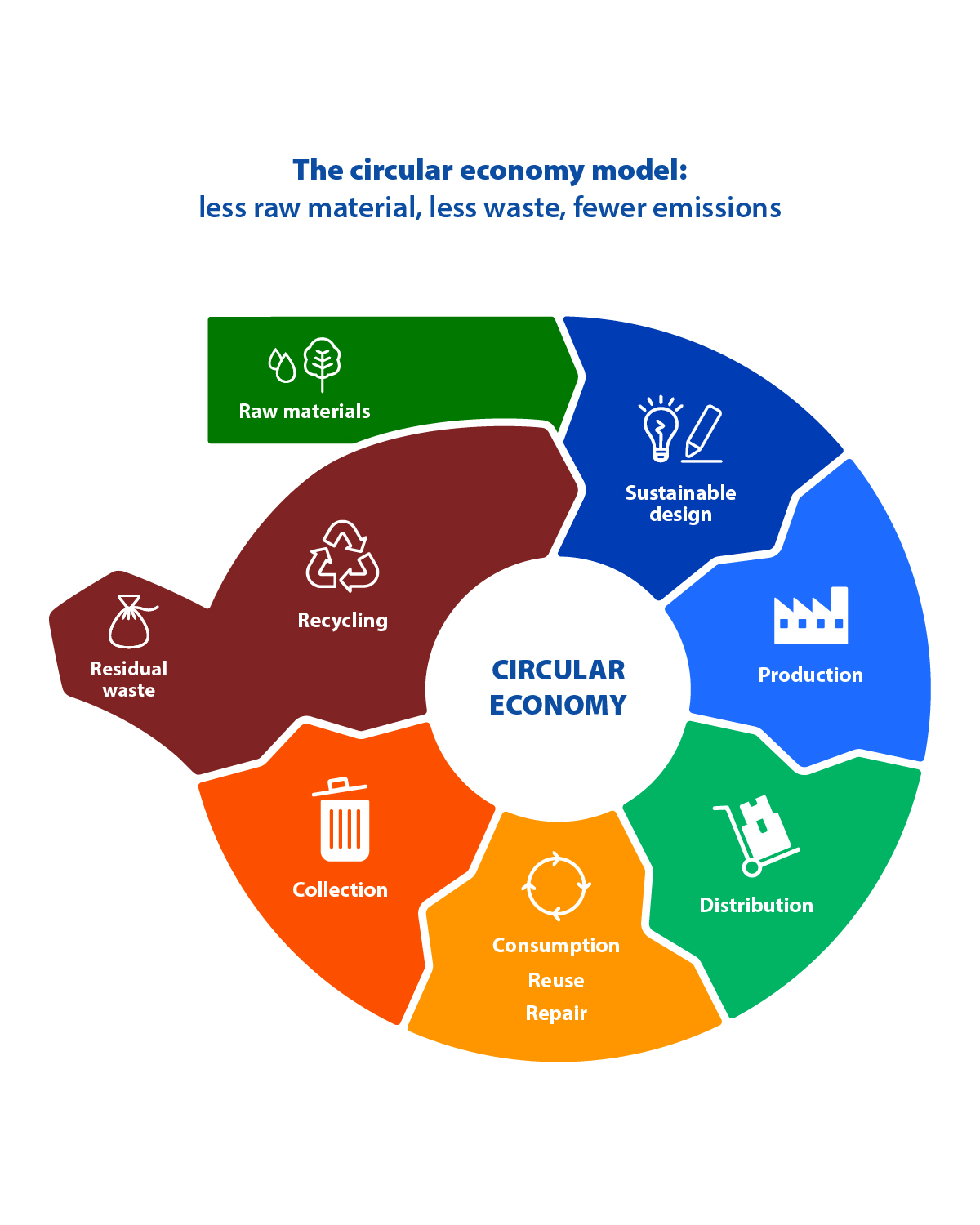Perhaps an utopia, however, still a guide for future development, which we as a society must begin to develop and use if we want to achieve the goals of ecological and "green" agreements and strategies. Moreover, above all, if we aim to alleviate the consequences of our negative effects on the environment and climate change.
CIRCULAR ECONOMY
The principle of the circular economy extends the life of products and reduces or eliminates the amount of waste. When a product reaches the end of its functional lifespan, the components/materials which it is made from are kept in use as much as possible. We can use the products or materials »infinitely« and thereby add value to products and to business in general. In conclusion, we strive to ensure a circular business/economic model. We bid the linear processes and models that have the guiding principle of the past decades and operate according to the principle of take - make - spend - throw away goodbye.

We observe planned obsolescence in the traditional linear model. This means that products have been designed with a limited functional lifespan, so that we discard them and use new ones. This increases the amount of waste and causes enormous pressure for the environment. Europe calls for an end of the current practice and wants to achieve circular models or, as much as possible, put circular economy into practice.
Considering companies will eventually be forced to introduce circular economy practices to the greatest extent possible due to increased competitiveness and economic pressure that will be following the change, it is extremely important for them to prepare for the transition to a circular economy. Measures such as waste prevention, eco-design and reuse can save the businesses money, while simultaneously reducing overall annual greenhouse gas emissions, which is also the guiding principle of the European Green Deal – the EU's leading strategy for curbing environmental impacts.
According to the EU, moving towards a circular economy can result in benefits such as reduction of the environmental impact, increase of the supply of raw materials, increased competitiveness, promotion of innovation, a boost to economic growth (an additional 0.5 percent of GDP) and job creation (700,000 jobs in the EU until 2030). There is also the positive aspect of a circular economy for the consumer, considering it offers us more durable and innovative products that will increase our quality of life and save money in the long term.
Prepared by: Tanja Tajnik, PhD in biological and biotechnological sciences, Tiko pro d.o.o.
If you have a circular economy project idea, don't hesitate to reach out to us at tina@tiko-pro.si. Our team of experts will guide you through the grant application process and help you secure the funding you need to make a positive impact on our environment.